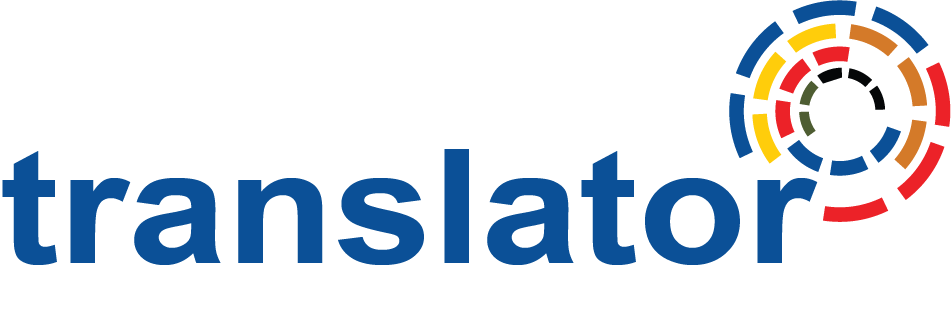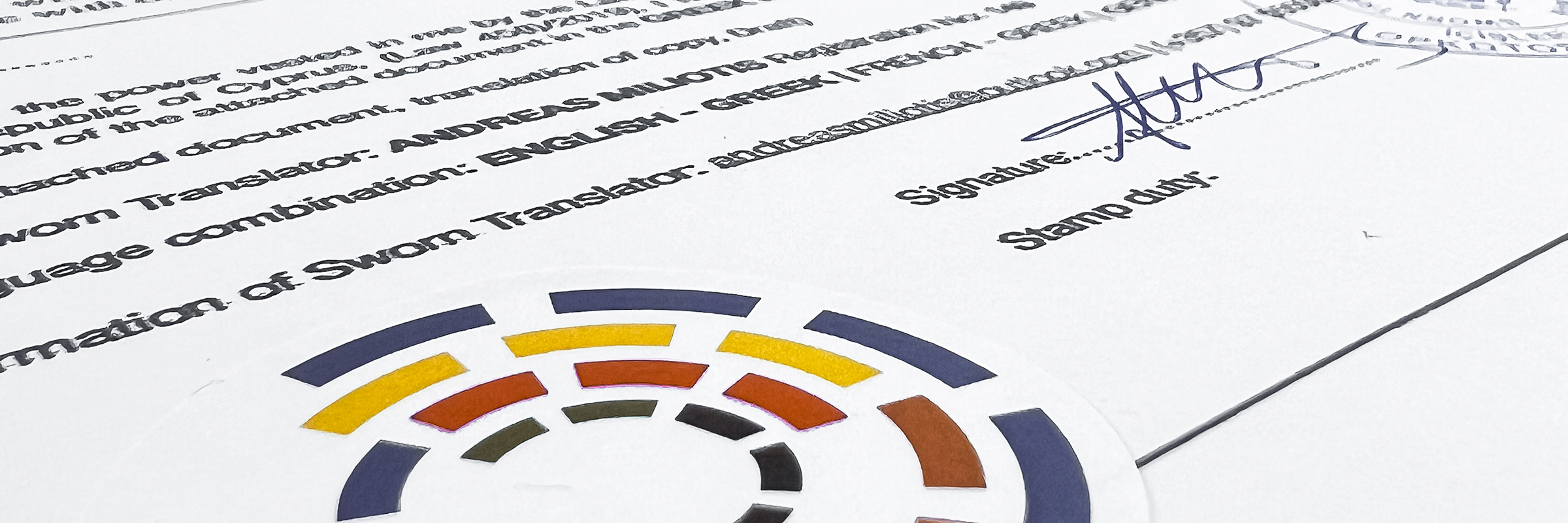Introduction
Sworn translations play a crucial role in ensuring that legal and official documents are accurately translated and recognized by authorities both in Cyprus as well as abroad. In Cyprus, the need for sworn translations has grown significantly due to the increasing globalization and movement of people and businesses. This article aims to provide an in-depth understanding of sworn translations in Cyprus, their importance, the process involved, and how they differ from certified translations.
What Are Sworn Translations?
Sworn translations are official translations issued by sworn translators who are authorized by the Ministry of Interior to translate official documents. These translations carry the translator’s signature, stamp, and a statement attesting to the accuracy and completeness of the translation as well as an official 2 EUR stamp duty issued by the Republic of Cyprus. In Cyprus, sworn translations must be done by translators registered with the Council for the Registration of Sworn Translators under the Press and Information Office of the Republic of Cyprus.
Importance of Sworn Translations
Sworn translations are vital for a variety of reasons. They ensure the validity of documents in different jurisdictions, facilitate international business transactions, and are often required for immigration, education, and legal proceedings. For instance, businesses expanding to Cyprus or Cypriot companies operating abroad need sworn translations for contracts, agreements, and corporate documents.
The Process of Sworn Translations in Cyprus
The process of obtaining a sworn translation in Cyprus involves several steps:
- Document Submission: The original document must be presented to a registered sworn translator. This can be done either in person or electronically.
- Translation: The translator carefully translates the document from the source language (English, French and German) to Greek or vice versa.
- Certification: The translator attaches a statement, signs, and stamps the document, and adds the official stamp duty issued by the Republic of Cyprus, certifying its accuracy and completeness.
- Delivery: The final translated and certified document is delivered to the client.
Key Differences Between Sworn and Regular Translations
The main difference between sworn and regular translations is the legal recognition. Sworn translations are legally binding and recognized by authorities, whereas regular translations may not hold the same legal weight. Additionally, sworn translators undergo rigorous certification processes, training and retraining to ensure their translations meet high standards of accuracy and reliability.
Use Cases for Sworn Translations
Sworn translations are commonly required for:
- Legal Documents: Contracts, court orders, and wills.
- Educational Documents: Diplomas, transcripts, and certificates.
- Business Documents: Articles of incorporation, financial statements, and tax records.
- Personal Documents: Birth certificates, marriage certificates, and passports.
Choosing the Right Sworn Translator in Cyprus
When selecting a sworn translator in Cyprus, it is important to consider their qualifications, experience, and reputation. Look for translators who are registered with the Council for the Registration of Sworn Translators and have a proven track record of delivering accurate and reliable translations.
Conclusion
Sworn translations are essential for ensuring the legal validity and recognition of translated documents in Cyprus and abroad. Understanding the process and importance of sworn translations can help businesses, legal professionals, and individuals make informed decisions when seeking translation services. At Metafrastis.com.cy, we specialize in providing high-quality sworn translations that meet the stringent requirements of the Republic of Cyprus and international standards.






